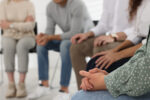Understanding the Effects of People, Places and Things in Recovery

Alcohol and drug abuse is rarely the result of a conscious effort to develop an addiction problem. On the contrary, addiction is often the result of a person turning to drugs and alcohol in an effort to cope with certain triggers over long periods of time. In the recovery process, these triggers are often broken down into three categories: people, places, and things.
In order for you or your loved one to have a more successful recovery, it’s essential to be aware of what people, places, or things may trigger the urge to use.
How People, Places and Things Affect Addiction Recovery
People
You may associate a number of different people with drug or alcohol use. Perhaps you get the urge to drink around a family member with whom you have tension or a colleague who has given you stimulants to help get through the day. Some other individuals who may trigger the urge to use, and potentially relapse, may include:
-
Former dealers
-
Fellow employees
-
Significant others
-
Friends
While some people can be aware of their effect on a loved one who has struggled with addiction, others are not.
Places
Some places, such as a bar or club, may seem like an obvious location that may put an adult’s addiction recovery at risk, but there are also other places that can have similar effects. These can be any places that caused a person stress or put them near substances, such as:
-
Workplaces
-
Hotels
-
Concerts or festivals
-
Certain friends’ homes
In some cases, it’s best to avoid places that can trigger you. If you’re unable to stay away from certain locations, such as your place of work, you’ll have to focus on managing your urges while there.
Things
Perhaps the most general of the three categories, “things” can refer to anything that your brain may relate to drugs or alcohol. This can include:
-
Drug paraphernalia
-
Certain movies or television shows
-
Credit cards or cash (if you had used them to take certain drugs)
While some of these items can’t be ignored, such as credit cards or cash, other items that you don’t need in your everyday life should be discarded. It may be wise to, at least at the beginning of your recovery, steer clear of any media that may trigger a relapse.
Silver Ridge specifically makes the addiction recovery process smoother for midlife patients. Our treatments and therapies are customized to fit the unique needs of each patient, creating a truly personalized experience.
To get the help you or a loved one’s needs, don’t hesitate to contact us today to learn more about our Ashville inpatient drug and alcohol rehab program.









